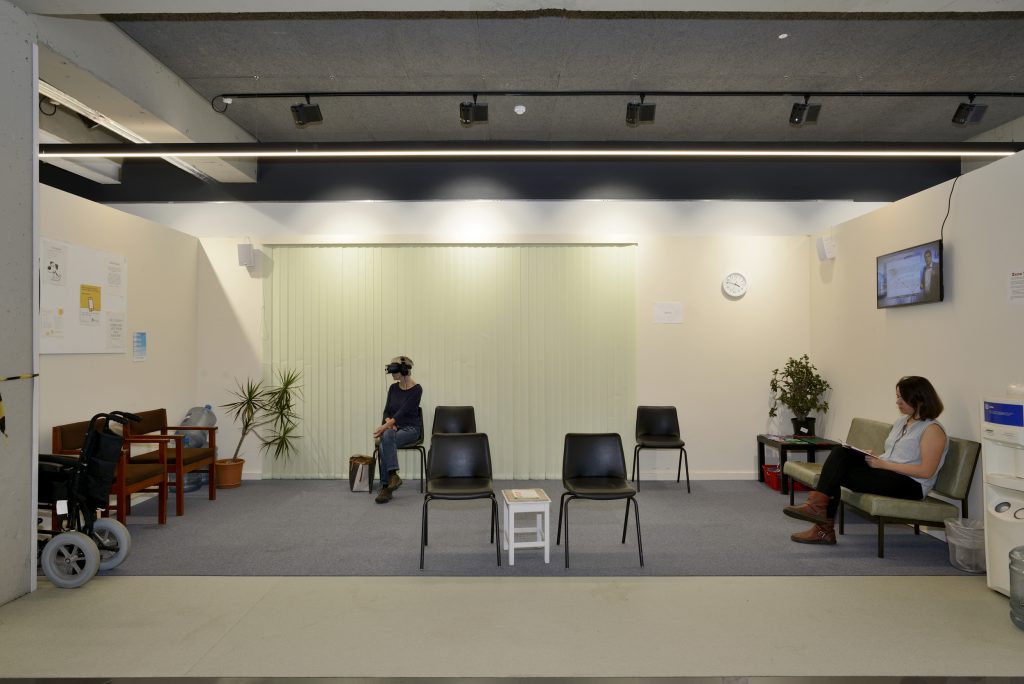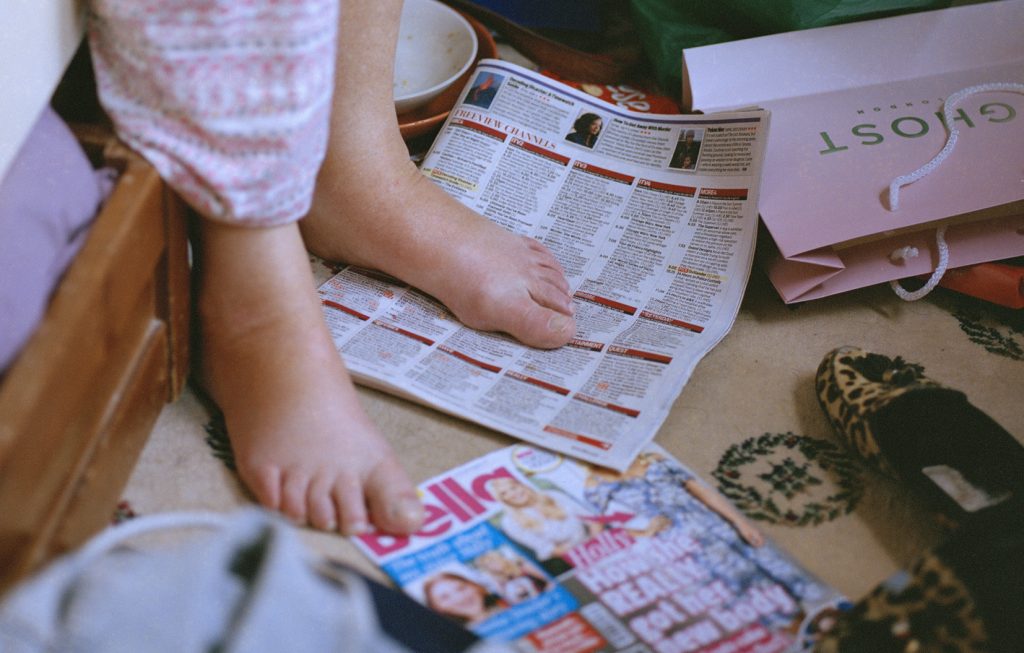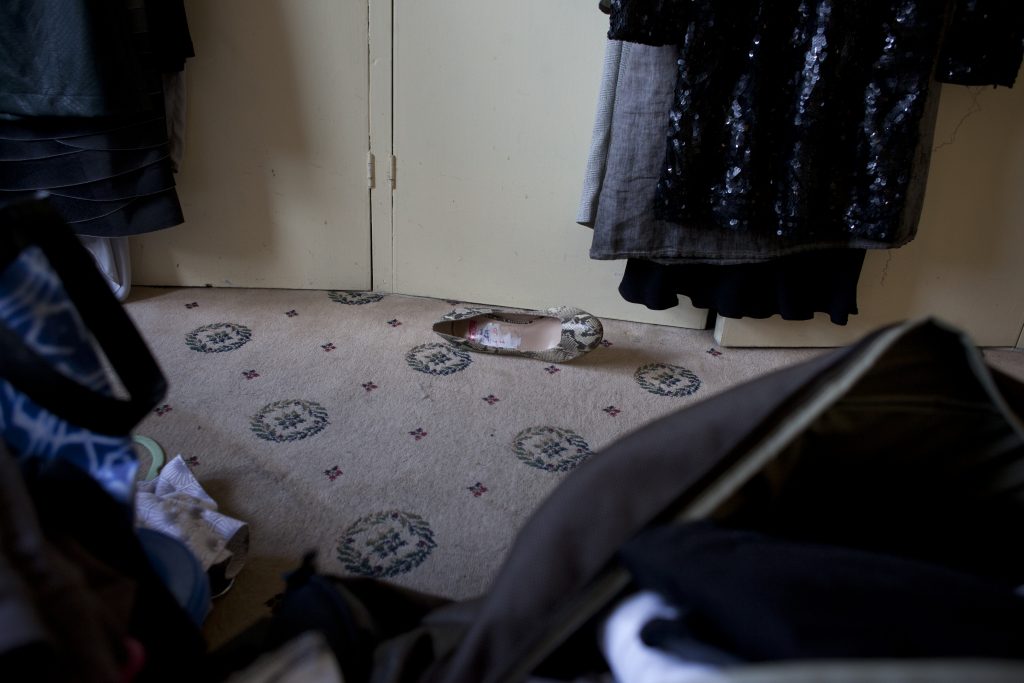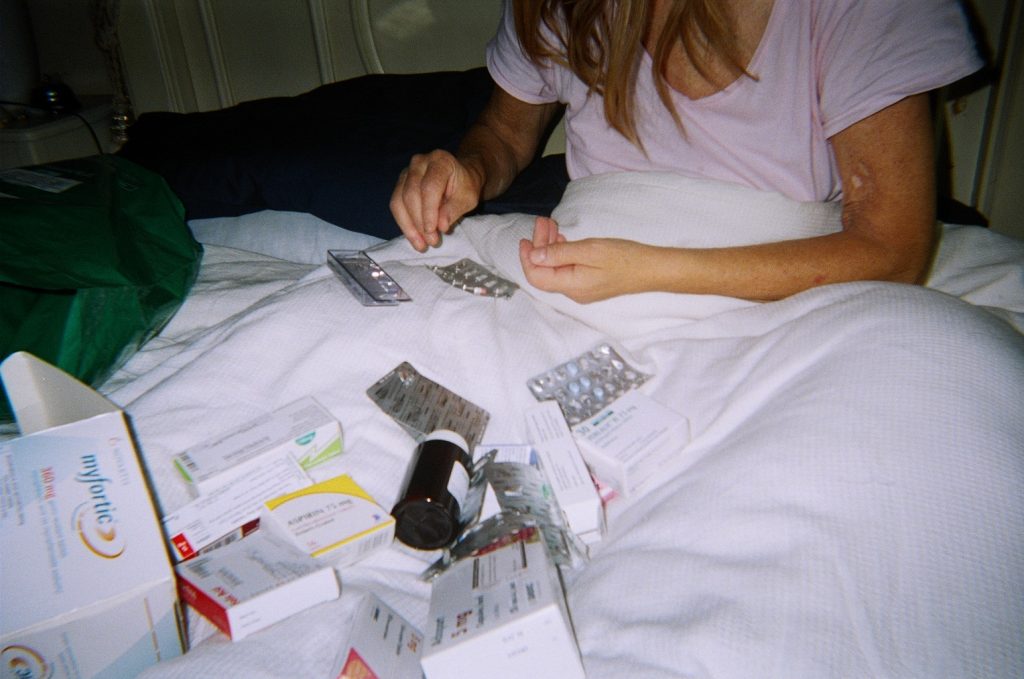The lens-based work, Timely Tale, is set against a backdrop of love, desire and health in the age of Excess. Through the vehicle of the artist’s mother, Penny, the audience views the work in the setting of a medical waiting room. To experience Penny’s story, viewers will be transported from the waiting room into her bedroom, with a short 360° film capturing: recuperation, finding the right outfit, storing medication and looking for the perfect online partner.
Timely Tale addresses the idea of choice and how, in the long run, too much choice can often lead to decision-making paralysis and its consequences. As much as the work is a comment on our current social and political landscape, it’s also an observation of how the photographic frame, with the advent of new technology, is dramatically changing for the first time. The work is viewed through headsets and Timely Tale uses 360° technologies to empower us to look around the artwork with choice of what to see.
Cyber Space was meant to be a decolonised, democratic utopia. What has it become instead?
Cyberspace may not be the democratic utopia that it set out to be. Instead, it has become in some instances another way in which people are controlled and manipulated. In each of my projects I keep my work as open as possible, photographically this is sometimes more of a challenge. The 360 technology has allowed me to create a more democratic viewing experience where viewers can choose what they view in the space.
Please share a major choice have you made in life which jolted you to explore and challenge choice in Timely Tale.
Talking to my mother, Penny, about the choices she has made and how they have impacted her health and the situation she is in prompted me to start thinking about the excess of choice and the number of decisions we are forced to make every day, in parallel with the reality of the confines these choices create. The NHS is impacted by the excesses of others and illness our choices are limited to that of survival. With this service and my mother’s health depleting I felt it was the right time to explore these issues.
When can the internet and technology betray or save us? You choose which to explore.
Technology can save us through an increased awareness of the reality of others lives. Timely Tale employs VR technology to situate the viewer inside the bedroom of my sick mother. When I made the decision to use this technology I was inspired by how charities have started to use VR to create more emotive experiences where we can situate ourselves within the physical space of an individual. I hope that in some small way these processors can contribute to an increased level of empathy, understanding and ultimately action.
What does the medical waiting room in Timely Tale mean to you in this work?
The medical waiting room is made of decommissioned NHS furniture and reflects on the closure and breakdown of these spaces due to government cuts. I also wanted to use this space as an environment that contrasted with the internal/private life of my mother. The chaos of sickness and mental health is revealed in this sterile unfriendly space highlighting the human element of a system underfunded and under threat.
When does the tipping point of overloaded decision-making lead to self-destruction and paralysis?
Paralysis of choice seems increasingly common when we are constantly exposed to images and ideals, especially through the internet. For my mother’s generation, I feel this is especially apparent, the daytime television she watches, the magazines and dating sights reveal a plethora of choice but the limits of her illness prevent her from fulfilling these desires.
What are you fighting for?
I’d say I was pushing for more awareness of the reality of mental and physical health and how the advent of art and technology can help us discuss this to a wider audience.
Would you be prepared to eliminate the internet from your life?
No. I use the internet a lot for my work in terms of inspiration and research. The research I do online informs the connections and real-life interactions I have that make my work possible.




